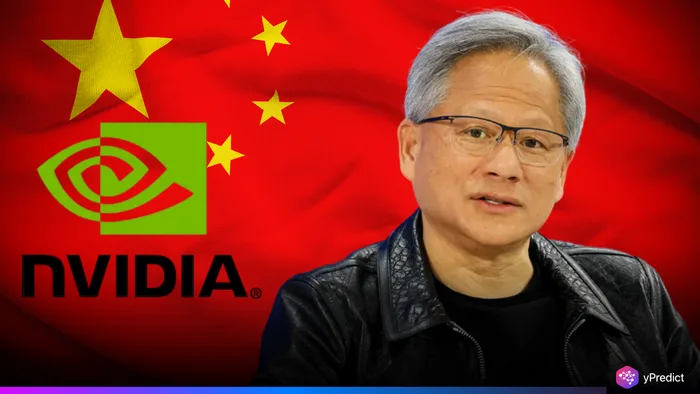
During his recent major trip to Beijing, Nvidia’s CEO Jensen Huang, talked on the importance of China’s AI research. It was at a time of unprecedented global tensions around technology and export controls on chips. Specifically, Huang had the most collaborative comments out of a week of very collaborative and global comments by other cross-sector leaders and experts.
He recognized and appreciated the contribution from China and domestic action, including the China DeepSeek AI program. Huang described the need for inclusive innovation in his conversations with political leaders, business leaders, and researchers. By including increasing recognition of China in the foundational model development, Nvidia is revealing an intent to stay connected to its Chinese tech ecosystem, no matter the global pressure.
Jensen Huang Meets Beijing’s Top Leaders to Strengthen AI Dialogue
Jensen Huang Beijing visit brought him face to face with both policymakers and pioneers of Chinese AI. Reports confirm that he participated in closed-door meetings with Chinese tech leaders and government advisors, where he focused on long-term collaboration opportunities.
While US-China tech relations remain complex, Huang avoided direct political commentary. Instead, he turned attention to the power of shared progress. His mention of DeepSeek AI, a fast-rising Chinese open-source model, signaled respect for the quality of work coming out of China’s research labs.
DeepSeek AI Gains Global Recognition from Nvidia’s Leadership
One of the standout moments of Huang’s remarks was his admiration for DeepSeek AI. This Chinese large language model has rapidly gained attention for its performance and scale. Huang acknowledged it as a symbol of China’s fast-moving AI capabilities and a sign that innovation is no longer confined to a handful of Western labs.
Nvidia has long been a key player in the AI compute race. Recognizing China’s models suggests a shift in tone—one that values international research regardless of origin. Huang’s appreciation of DeepSeek also implies Nvidia’s keen interest in AI software ecosystems built atop their hardware platforms.
Nvidia Eyes Continued Collaboration Despite Global Chip Restrictions
Even as the US restricts exports of advanced GPUs to China, Nvidia continues to signal openness to working within those constraints. Huang’s presence in Beijing and his support for China AI research show that Nvidia is eager to remain relevant in one of the world’s largest AI markets.
He stressed the need for “bridges not walls” during one of the public discussions. It was a subtle nod to how technology must transcend politics. Analysts say Huang’s stance could help ease friction, as China’s AI talent grows and demand for AI compute surges.
China’s Growing AI Power Could Shift Global Balance
China’s national focus on open-source models, independence from others, and locally developed training infrastructure for AI is starting to change the way we view AI. Huang’s visit to China endorsed these revelations indirectly. His openness and publicly demonstrated admiration for China’s AI ecosystem may also motivate other Western firms to stop looking at China as a competitor and open the door to treating the ecosystem as a partner.
By backing such efforts as DeepSeek AI, Nvidia is not only selling chips: they are now working with the emerging shift of leadership in AI. As nations strive toward supremacy in AI, partnering together on cooperative efforts like this may be the springboard for groundbreaking AI research and applications.






